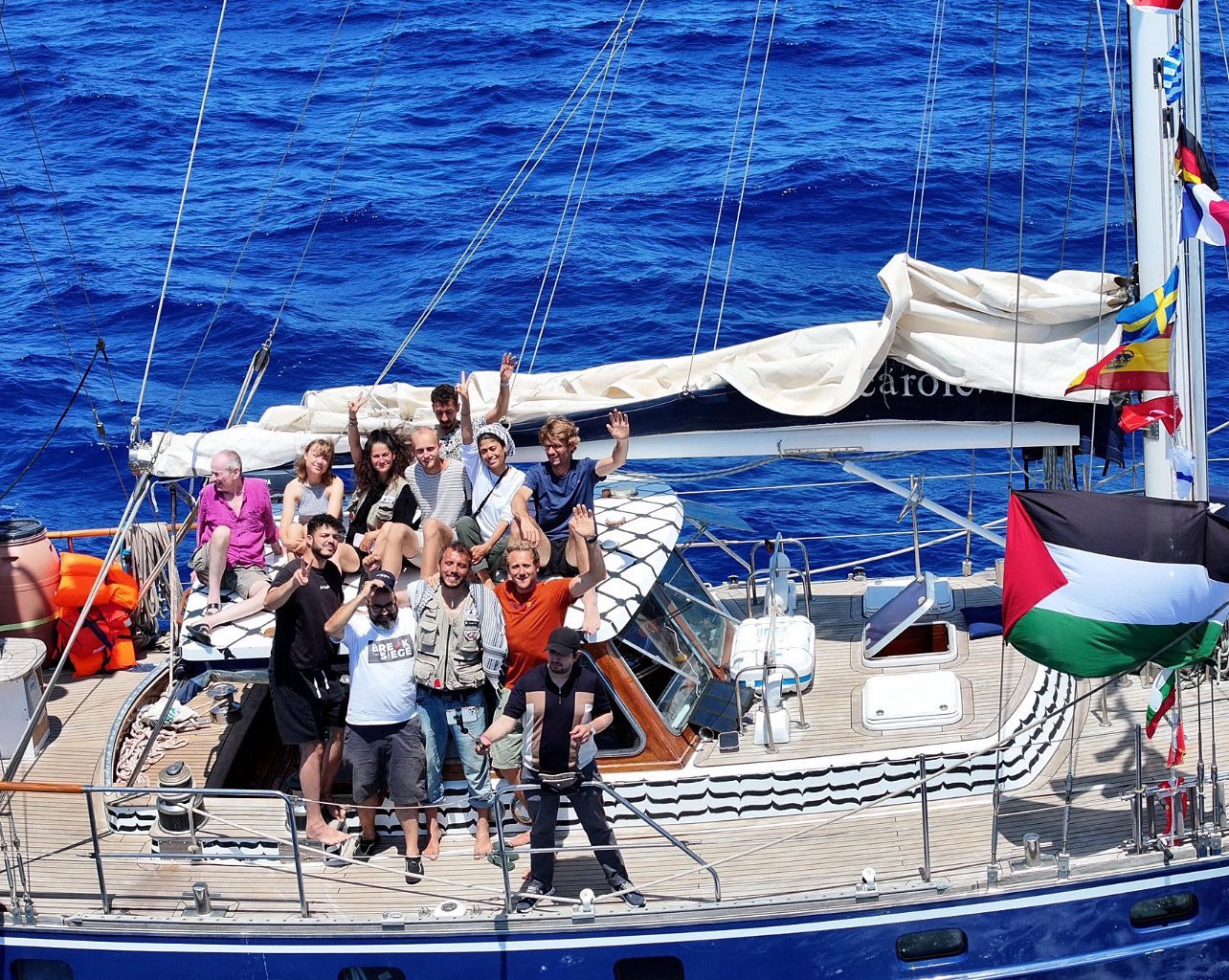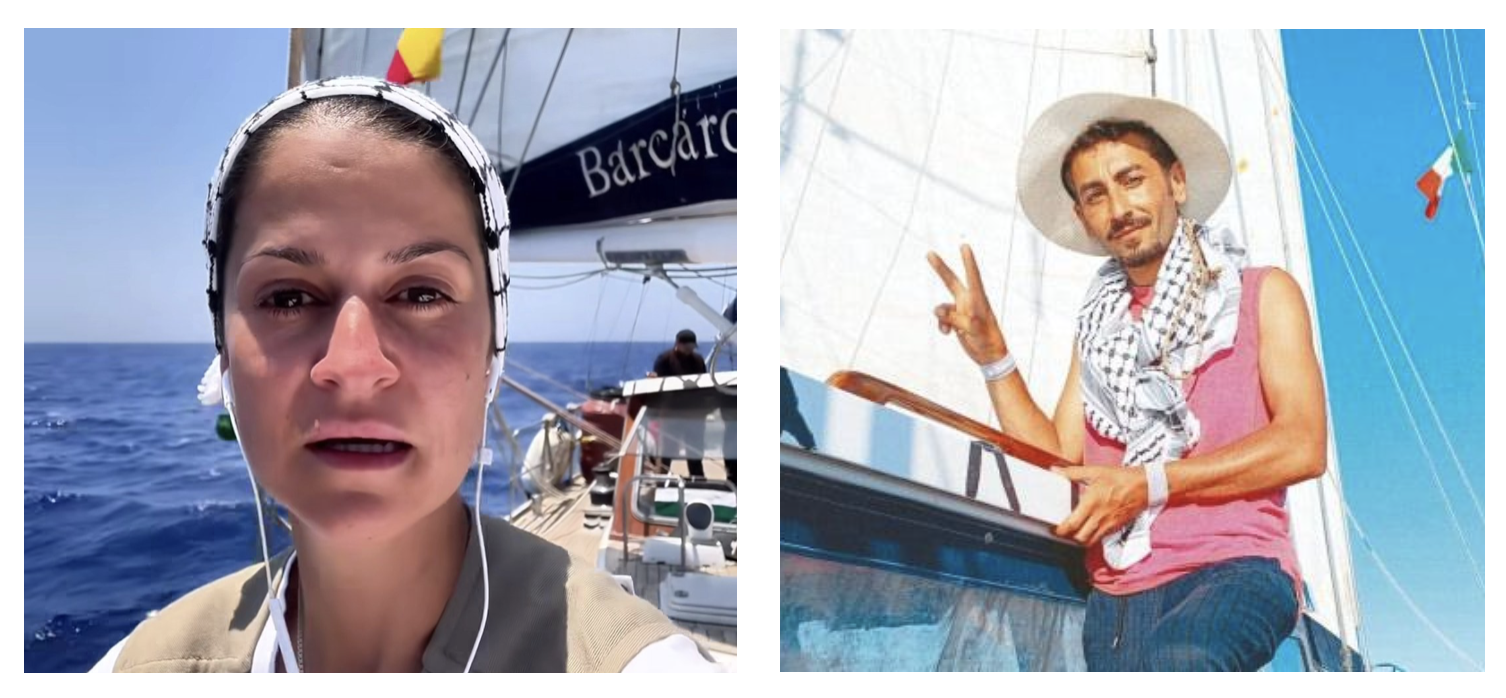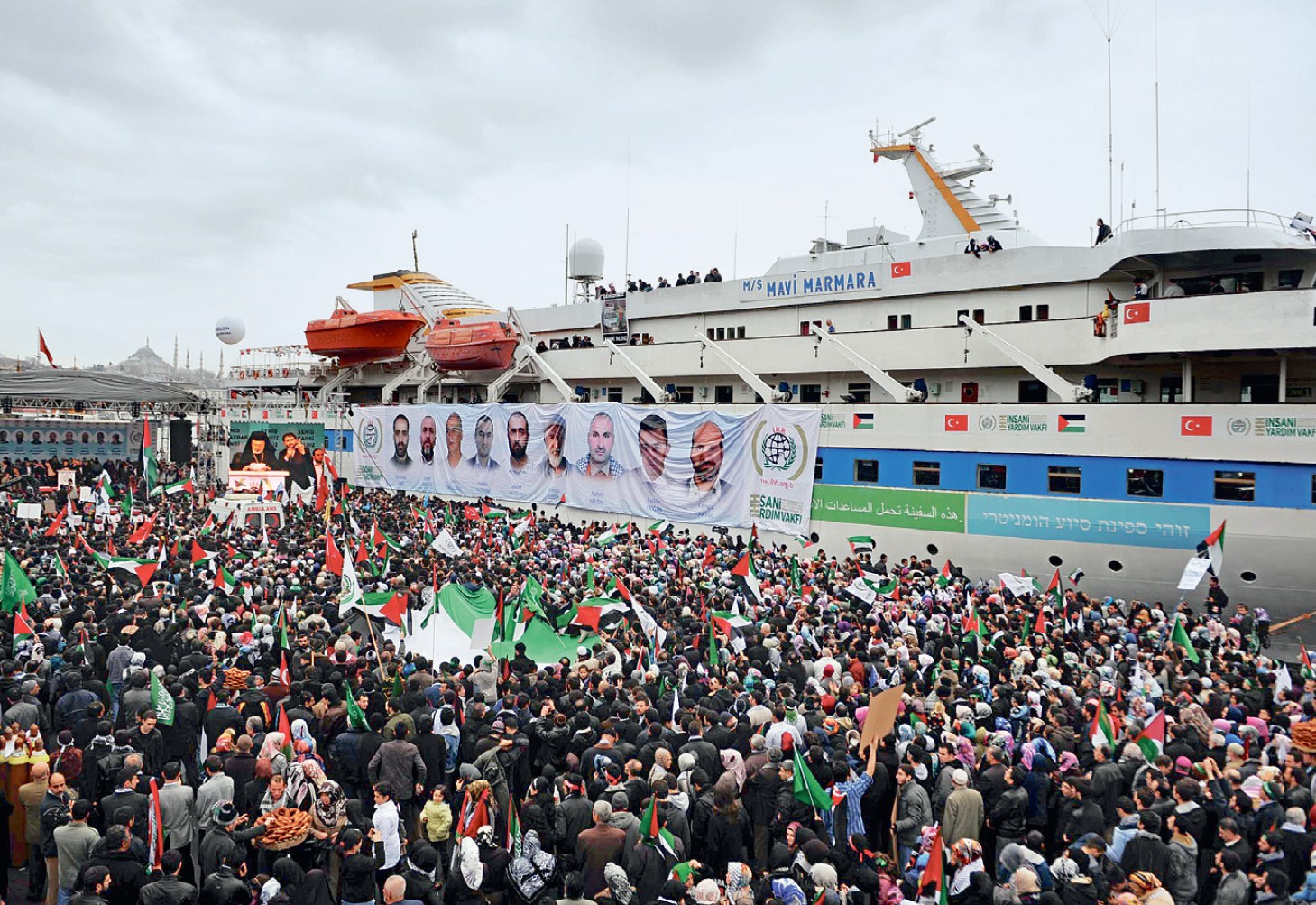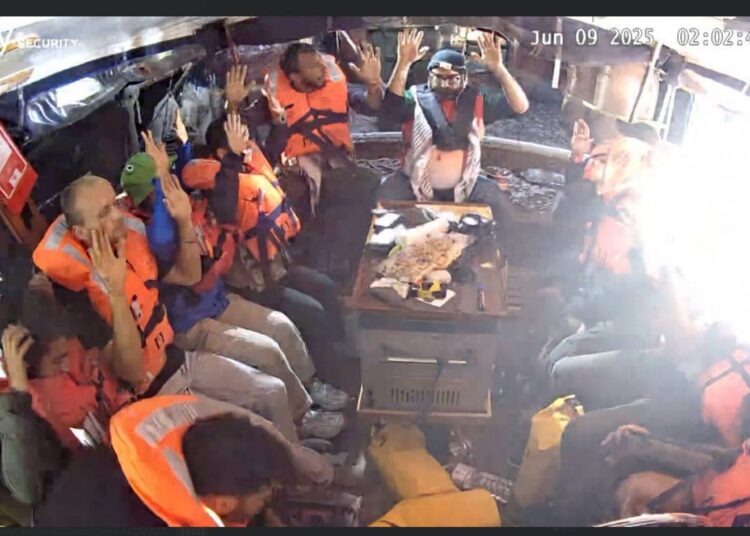Levent Kenez/Stockholm
Seeking to avoid a repeat of past diplomatic crises, Turkey is treading carefully in its response to the Israeli military’s interception of the Madleen, a humanitarian aid vessel attempting to breach the blockade on Gaza. The boat, which carried a number of international activists including two Turkish nationals, was halted by Israeli forces on Monday in international waters, prompting restrained yet critical statements from Ankara.
The Turkish Ministry of Foreign Affairs condemned the interception of the boat as a violation of international law. “The intervention by Israeli forces against the Madleen, which was in international waters and on a mission to deliver humanitarian aid to Gaza, constitutes a clear breach of international law,” the ministry said in a statement issued only in Turkish and Arabic.
The ministry further accused Israel of acting as a “terrorist state,” citing its continued blockade of Gaza and obstruction of humanitarian aid. “Israel’s heinous attack threatens maritime safety and freedom of navigation and proves once again its lawless behavior,” the statement read.

Initially, observers noted the absence of English and French-language versions of the statement on official Turkish channels. Unlike previous incidents that quickly escalated into diplomatic crises, Ankara’s response appeared measured in both tone and scope. However, it was not until many hours later that English and French translations were added, though no dedicated post regarding the Madleen incident had yet appeared on the Turkish Foreign Ministry’s English and French language social media accounts by the time of publication.
Government-aligned media in Turkey reported that diplomatic efforts were underway to secure the release of Turkish citizens aboard the vessel. A follow-up statement from foreign ministry sources confirmed that the ship was expected to reach an Israeli port by evening and that steps were being taken to ensure consular access to the detained passengers.
“We have initiated the necessary procedures to meet with them immediately upon disembarkation and to secure their release,” sources from the ministry said. “We are also in contact with officials from other countries whose citizens were aboard the Madleen.”
The Madleen carried 12 people, including Turkish citizens Yasemin Acar and Şuayb Ordu.
Acar, 39, is a dual citizen of Germany and Turkey and is widely known for her human rights advocacy. Born in Berlin to a Kurdish family of Turkish origin, Acar has been active in campaigns related to social justice, refugee rights and anti-racism since her teenage years. In the wake of the war in Ukraine, she co-founded the Berlin Arrival Support network, providing assistance to displaced people and coordinating with civil society institutions in Germany. In recent years Acar has taken a prominent role in pro-Palestinian initiatives. On the Madleen she served as the media coordinator, helping draw international attention to the situation in Gaza.

Şuayb Ordu, 31, is a theology graduate residing in Bursa, Turkey. Ordu had previously expressed concern in social media posts that his Turkish citizenship might subject him to harsher treatment by Israeli authorities.
The vessel departed from Sicily on June 3 as part of a broader humanitarian initiative organized by the Freedom Flotilla Coalition, a pro-Palestinian group that has sought to challenge the Israeli blockade on Gaza through direct action.
The vessel was also carrying 10 other people including Rima Hassan, a French member of the European Parliament; Thiago Ávila of Brazil; Sergio Toribio of Spain; Marco van Rennes of the Netherlands; Baptiste André, Reva Viard, Pascal Maurieras and Yanis Mhamdi from France; Swedish climate activist Greta Thunberg; and journalist Al Jazeera journalist Omar Faiad.
Turkish President Recep Tayyip Erdogan’s tone toward Israel often shifts in response to domestic political dynamics and the sensitivities of his core voter base. While he is known to deliver strong rhetoric — particularly during his party’s weekly parliamentary group meetings on Wednesdays — critics argue that these statements rarely translate into concrete policy measures. Opposition leaders frequently accuse Erdogan of using harsh language to appease the public without taking substantive action.
Despite Ankara’s decision to impose a trade boycott on Israel in May 2024, Turkey remains one of Israel’s major trading partners. Numerous reports suggest that Turkish companies continue conducting business with Israel indirectly, either by routing goods through third countries or by labeling them as destined for Palestine. Although Turkish authorities are reportedly aware of these practices, no effective measures have been taken to halt them.
Erdogan also faces criticism for remaining silent on the oil exports to Israel that are transported via a pipeline running from Azerbaijan through Turkey. While the Turkish president publicly labels Israel a “terrorist state,” critics including members of the opposition and certain Islamist groups point to what they describe as a contradiction between this rhetoric and the country’s continued facilitation of oil exports to Israel.
This latest interception at sea has revived memories of an incident in the past. In 2010 the Mavi Marmara flotilla, organized by Human Rights and Freedoms and Humanitarian Relief, a Turkish intelligence-linked charity, with the aim of delivering aid to Gaza, was intercepted by the Israeli navy, resulting in the death of nine Turkish and one Turkish-American pro-Palestinian activists. This incident not only led to a diplomatic crisis but was also extensively exploited by then-prime minister Erdogan as a prominent political tool during domestic rallies. In response to the incident, in 2011 Erdogan made a significant announcement suspending trade and military relations with Israel. However, it later came to light that the Safran 1, a ship owned by Erdogan’s elder son, Burak, had been engaged in transporting goods between Turkish and Israeli ports on multiple occasions.
In 2014 Erdogan engaged in a public dispute with the late preacher Fethullah Gülen, a vocal critic who had suggested that the aid mission to Gaza could have been carried out peacefully with prior consent from the authorities. He challenged Gülen’s stance, asking, “Who are the authorities? If we are the authority, then we already gave permission.” Ironically, in 2016 Erdogan contradicted his earlier argument, criticizing the organizers of the Mavi Marmara flotilla, saying, “Did you seek the then-prime minister’s permission to organize that aid campaign?”

Meanwhile, Özgür Özel, leader of Turkey’s main opposition Republican People’s Party, commented on the incident during a press briefing. “We are dealing with a reckless Israel that won’t even allow unarmed activists to deliver pasta,” he said. “If the president takes a strong and principled stance this time, I will give him credit. This is not the time for pretenses: It is time to respond to Israel. We will stand firmly behind any legitimate action taken.”
Israel and Egypt have imposed varying levels of blockade on Gaza since 2007, when the militant group Hamas took control of the territory. Israel contends the blockade is necessary to prevent Hamas from acquiring weapons. However, critics argue it amounts to collective punishment of over 2 million Palestinians living in the enclave.
On October 7, 2023, Hamas militants launched a large-scale attack on southern Israel, killing approximately 1,200 people and taking 251 hostages. Since then, more than half of the hostages have reportedly been released, though around 55 are still believed to be held in Gaza, with many presumed dead.
In response Israel launched an extensive military campaign. According to Gaza’s Ministry of Health, over 54,000 Palestinians have been killed in the conflict, though the figures do not distinguish between civilians and combatants. A significant portion of the dead are reported to be women and children. The war has devastated much of Gaza’s infrastructure and displaced nearly 90 percent of the population.
Only a month ago, another aid vessel organized by the Freedom Flotilla Coalition came under attack in international waters near Malta. The ship was reportedly damaged by two unmanned aerial vehicles, with the group accusing Israel of carrying out the strike. No official confirmation was issued by the Israeli government.












